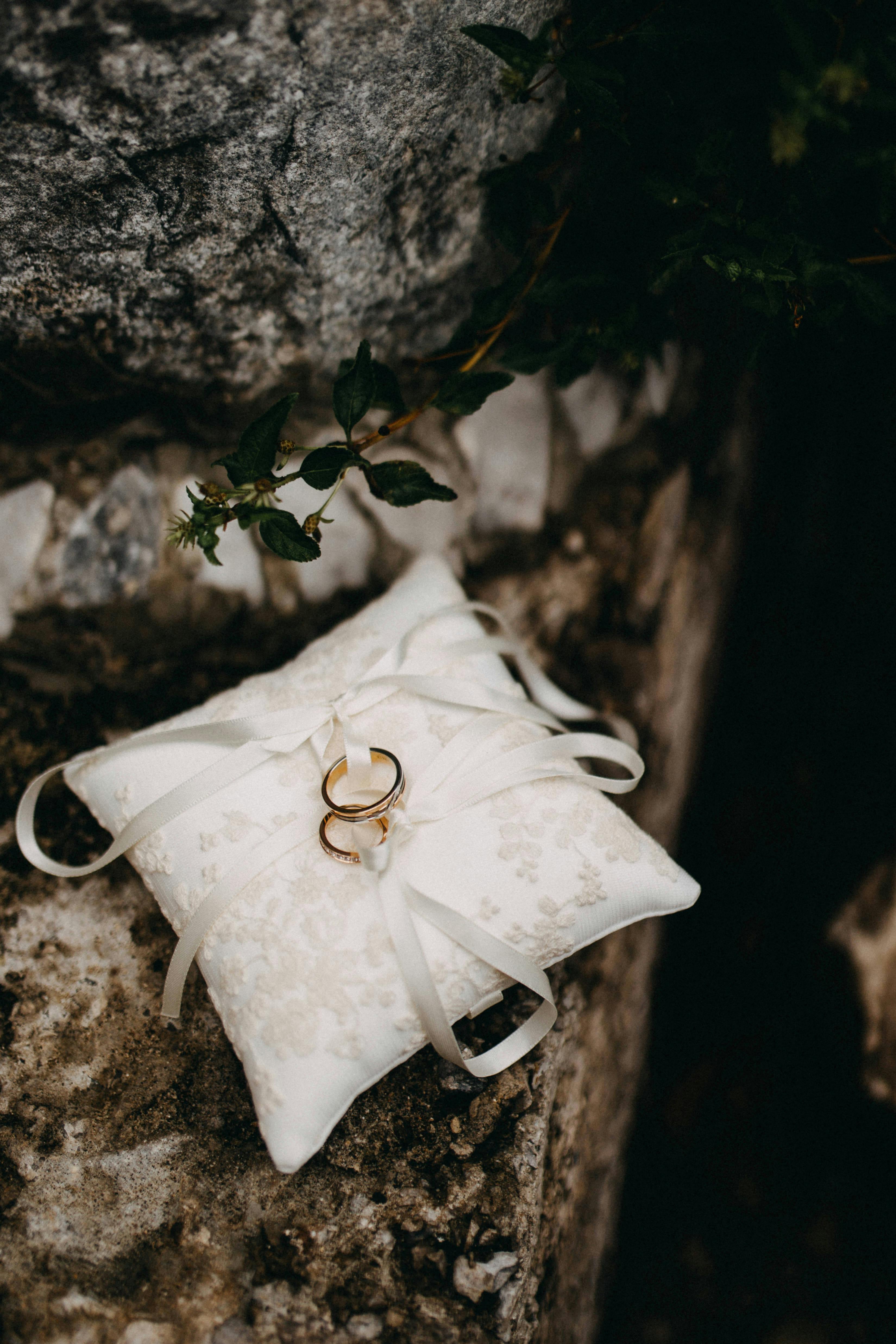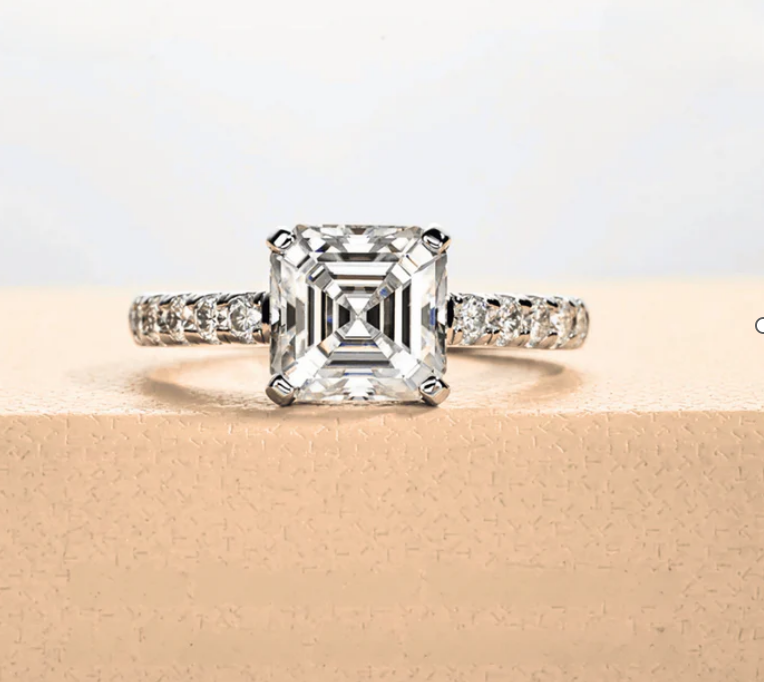
10 Stunning Wedding Bands Featuring Lab Grown Diamonds
Lab-grown diamonds have changed the wedding band market, offering a compelling alternative to traditional mined diamonds. Created using advanced technological methods that replicate natural diamond formation, these diamonds are chemically, physically, and optically identical to their mined counterparts. The growing popularity of lab-grown diamond wedding bands can be attributed to several key factors:
Ethical Sourcing: Unlike mined diamonds, lab-grown diamonds are produced in controlled environments, ensuring they are conflict-free and ethically sourced.
Affordability: Lab-grown diamonds tend to be more affordable than natural diamonds, providing couples with stunning options without compromising on quality.
Environmental Impact: The production of lab-grown diamonds significantly reduces the environmental impact associated with traditional diamond mining.
These attributes make lab-grown diamond wedding bands a modern choice for couples seeking ethical, affordable, and visually appealing jewelry.
Understanding Lab Grown Diamonds
Lab-grown diamonds are created using advanced technological methods that replicate the natural diamond formation process. Two primary techniques used for this are High Pressure High Temperature (HPHT) and Chemical Vapor Deposition (CVD).
Methods of Creation
1. High Pressure High Temperature (HPHT)
This method mimics the natural conditions under which diamonds form in the earth's mantle. A small diamond seed is placed in carbon and subjected to intense heat and pressure until a larger diamond form around the seed.
2. Chemical Vapor Deposition (CVD)
In this process, a diamond seed is placed in a chamber filled with carbon-rich gas. The gas is ionized into plasma, causing carbon atoms to deposit onto the seed, layer by layer, forming a diamond.
Comparison with Natural Diamonds
Lab-grown diamonds are indistinguishable from natural diamonds in terms of physical and chemical properties. Here are some key points:
Physical Properties: Both lab-grown and natural diamonds have the same hardness, refractive index, and thermal conductivity.
Chemical Composition: Lab-grown diamonds are made of pure carbon, just like mined diamonds. They exhibit identical crystal structures.
The only notable difference lies in their origin. Lab-grown diamonds are produced in controlled laboratory environments, making them a more sustainable and ethical choice compared to their mined counterparts.
For couples considering wedding bands featuring lab-grown diamonds, understanding these processes can illuminate why these stones offer both beauty and ethical value. Explore more about stunning options here and stay updated with exclusive offers here.
Benefits of Choosing Lab Grown Diamond Wedding Bands
Ethical Implications
Choosing lab-grown diamonds for wedding bands supports ethical consumption. Traditional diamond mining often involves human rights violations and conflict zones where diamonds are used to fund wars. By opting for lab-grown diamonds, you contribute to a conflict-free market, ensuring your purchase doesn't indirectly support unethical practices.
Environmental Benefits
Lab-grown diamonds are also a sustainable choice. Mining natural diamonds significantly impacts the environment, leading to soil erosion, deforestation, and loss of biodiversity. In contrast, lab-grown diamonds are produced in controlled environments that drastically reduce these adverse effects. This makes them an eco-friendly option for couples who prioritize sustainability.
Affordability and Value for Money
When it comes to affordability, lab-grown diamond wedding bands offer exceptional value for money. These diamonds are generally priced 20-40% lower than their mined counterparts while maintaining identical physical and chemical properties. This cost-effectiveness allows you to invest in higher quality or larger stones without exceeding your budget.
Explore the classic allure of Princess-Cut 1.2ct Moissanite Ring with 18K White Gold Finish or the timeless beauty of the Round Moissanite Solitaire Pendant Necklace - 18K White or Yellow Gold for a glimpse into other sustainable and affordable options available in the market today.
Top 4 Stunning Wedding Bands Featuring Lab Grown Diamonds

1. Classic Solitaire Band
The classic solitaire band represents timeless elegance and simplicity. This design features a single, stunning lab-grown diamond as the centerpiece, allowing the gem's brilliance to shine without distraction. Popular among couples for its understated beauty, the classic solitaire is a versatile choice that complements any style.
Suitable Metal Options:
Gold: Available in white gold, each offering a distinct look.
For those interested in exploring similar styles, check out the Tri-Emerald 1.8 TCW Moissanite Engagement Ring on XVI Latorre.
2. Eternity Band with Lab Grown Diamonds
Eternity bands symbolize everlasting love with their continuous line of lab-grown diamonds encircling the entire ring. These bands are not only visually striking but also carry profound emotional significance, making them a popular choice for wedding jewelry.
3. Multi-Metal Lab Grown Diamond Band
Mixing metals in wedding bands is a growing trend that offers both aesthetic appeal and versatility. Multi-metal bands combine elements like gold and platinum to create a unique look that can match various other pieces of jewelry.
Exploring these options can provide you with a range of choices to find the perfect lab-grown diamond wedding band that suits your taste and values. For more elegant designs, consider viewing the Cushion-Cut 3ct Moissanite Engagement Ring on XVI Latorre.
Eternity Band with Lab Grown Diamonds
Eternity bands symbolize endless love and commitment, making them a popular choice for wedding bands. With their continuous circle of diamonds, eternity bands offer timeless elegance and a classic design.
Design Features:
Continuous Sparkle: The band is adorned with lab-grown diamonds that encircle the entire ring, ensuring it sparkles from every angle.
Versatility: Suitable for various occasions beyond weddings, such as anniversaries or milestones.
Customization: Available in different metals like gold and platinum, allowing you to create a piece that matches your personal style.
Explore more stunning designs and learn about the benefits of lab-grown diamonds at XVI Latorre.
Multi-Metal Lab Grown Diamond Band
Mixing metals in wedding bands is a popular trend that adds a unique touch to traditional designs. This style combines different metals such as gold, platinum, and rose gold, creating a beautiful contrast that enhances the timeless beauty of lab grown diamond wedding bands.
Benefits of Multi-Metal Designs:
Versatility: Allows for pairing with various pieces of jewelry.
Unique Aesthetics: Creates distinctive looks through trendy combinations.
Personal Expression: Offers a way to reflect individual style preferences.
By choosing a multi-metal lab grown diamond band, you embrace both modern trends and classic elegance.
Leading Brands Offering Lab Grown Diamond Wedding Bands
When it comes to lab-grown diamond wedding bands, several brands stand out for their commitment to quality and ethical sourcing. Diamond Nexus and Grown Brilliance are two notable names in this market.
Diamond Nexus
Diamond Nexus is renowned for its wide range of lab-grown diamond jewelry, including wedding bands. This brand emphasizes sustainability by offering conflict-free diamonds that are indistinguishable from mined ones. Key features of Diamond Nexus include:
Variety: A broad selection of designs ranging from classic solitaires to intricate eternity bands.
Customization: Options for personalizing metal types, settings, and diamond shapes.
Sustainability: Strong focus on reducing environmental impact with eco-friendly practices.
About XVI Latorre
XVI Latorre focuses on affordable luxury, offering high-quality lab-grown diamonds and Moissanite jewelry. The brand emphasizes:
- Affordability: High-quality luxury at lower prices.
- Sustainability: Eco-friendly practices in jewelry production.
- Diverse Collection: Various styles catering to different tastes.
For more details, visit XVI Latorre.
Conclusion: Embracing Ethical Elegance with Lab Grown Diamond Wedding Bands
Choosing a lab-grown diamond wedding band means investing in a piece that is both beautiful and ethically sourced. These diamonds provide the same brilliance and quality as mined diamonds but without the associated environmental and ethical concerns.
Explore options available from reputable jewelers who specialize in high-quality pieces crafted using man-made gems. Brands like Diamond Nexus and Grown Brilliance offer extensive collections, ensuring you find the perfect ring to symbolize your commitment.
FAQs
1. What are lab-grown diamonds?
Lab-grown diamonds are diamonds created in a controlled laboratory setting using advanced technological processes that mimic the natural diamond formation. These diamonds are chemically, physically, and optically identical to mined diamonds.
2. Are lab-grown diamonds real diamonds?
Yes, lab-grown diamonds are real diamonds. They possess the same chemical composition, hardness, brilliance, and optical properties as natural diamonds.
3. How do lab-grown diamonds compare to mined diamonds in terms of cost?
Lab-grown diamonds typically cost 20-40% less than mined diamonds of comparable size and quality. This affordability makes them an attractive option for couples looking for stunning wedding bands without breaking the bank.
4. Are lab-grown diamond wedding bands ethical?
Yes, lab-grown diamond wedding bands are considered more ethical than those featuring mined diamonds. They are conflict-free and have a significantly lower
environmental impact since they do not involve mining activities.
5. Where can I buy lab-grown diamond wedding bands?
Over here with us. You Can explore our online best sellers from different categories and according to your sizes to find the perfect band that meets your preferences and budget.
6. Do lab-grown diamond rings come with certification?
Yes, most lab-grown diamond rings come with certification from reputable gemological laboratories such as GIA or IGI. These certificates confirm the diamond's authenticity and quality.






